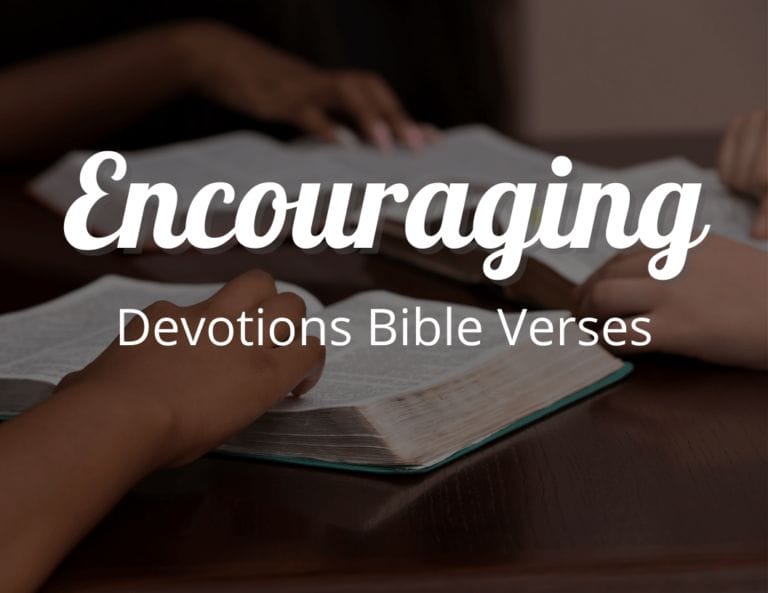Feeling anxious can be overwhelming and scary. You might feel like your thoughts are running away with you, making it difficult to focus on anything else. But there is hope!
Practicing devotions can help manage anxiety, bringing peace and clarity back into life. Devotions are a powerful tool for getting in touch with ourselves and tapping into our inner strength.
In this article, we’ll explore the basics of anxiety and how devotions can help us cope with the discomfort it brings – from types of devotions to finding them to using self-care techniques that will keep us calm and centered even in times of distress.
Let’s get started!
Understanding Anxiety
You’re probably feeling overwhelmed by anxiety right now, but understanding it can help you take control. It’s important to recognize that anxiety is a normal emotion, but when it becomes too intense or lasts for an extended period of time, it can have a negative impact on our lives.
One key step in managing anxiety is recognizing your own triggers and facing your fears head-on. Triggers are any situation or event that causes the individual to experience strong feelings of distress or fear. By learning to recognize these triggers and understand how they affect us emotionally, we can better prepare ourselves to face them without overwhelming fear or dread.
Additionally, facing our fears can help us gain confidence and learn new coping strategies for dealing with future anxieties and worries. With this knowledge about our own mental health, we can move forward into the next section–how devotions help manage anxiety.
How Devotions Help Manage Anxiety
Facing anxious moments can be overwhelming, but with a few simple practices, you’ll find yourself better equipped to tackle them. One of these practices is devotional prayer and reflection.
Devotions can help in managing anxiety by giving an outlet to express your feelings, drawing strength from God’s Word, and building trust in God’s will and plan for your life.
Devotions provide an opportunity to turn our anxieties over to God and recognize that He is ultimately in control. Through prayerful reflection on Scripture, we learn how to trust Him more deeply by overcoming fear and trusting in His promises of faithfulness. As a result, we become empowered with peace and courage as we take each step forward into the unknowns of our futures.
This transition leads us naturally into the next section about types of devotions…
Types of Devotions
When it comes to managing anxiety, devotions can be a great help. Bible verses, meditation, and mindfulness are all important elements of a devotion practice that can bring peace and comfort during difficult times.
Whether you prefer to read scripture or use guided meditations, finding the right practice for you is key in establishing an effective devotional routine that works for your needs.
Whatever your approach may be, it’s important to remember that taking the time for yourself is always worth the effort.
Bible Verses
Struggling with fear and worry? Look to God’s Word for peace and comfort! The Bible contains many verses that can help us in our anxiety, providing us with prayerful reflection, spiritual comfort, and hope.
In times of distress and uncertainty, we can turn to scriptures like Philippians 4:6-7. It reads, “Do not be anxious about anything, but in every situation, by prayer and petition, with thanksgiving, present your requests to God. And the peace of God, which transcends all understanding, will guard your hearts and your minds in Christ Jesus.”
Additionally, Psalm 23 reminds us that even though we may walk through the valley of the shadow of death, He is there to lead us through it. “Even though I walk through the darkest valley I will fear no evil for you are with me; Your rod and staff they comfort me” (Psalm 23:4).
As we meditate on these verses or others that speak to our souls during times of struggle, we can find a sense of solace knowing that God is always near. Transitioning now into meditation and mindfulness practices as another way to confront anxious feelings.
Meditation and Mindfulness
Experience the peace of mind that comes from meditation and mindfulness by taking a few moments to focus on your breathing and be present in the moment.
Engage in prayerful reflection and spiritual growth to help reduce feelings of anxiety, allowing you to create space to confront them.
As you take time for yourself, try to let go of worries and anxieties that come up during this period. Instead, focus on calming your mind and body through mindful activities such as deep breathing or visualization techniques.
This kind of practice can help cultivate inner peace that will last long after your meditation session is over, providing you with a sense of comfort even while dealing with anxious thoughts or feelings.
With practice, you can move forward towards finding devotions that will deepen your spiritual journey even further.
Finding Devotions
Searching for ways to ease your anxious mind? Look no further – you’ll find the help and support you need.
When it comes to finding devotions about anxiety, there are several avenues you can take:
- Connect with faith – through prayer, scripture reading, or attending religious services.
- Listen to podcasts related to mental health and spirituality.
- Seek out uplifting stories from sources like books or blogs.
These resources can provide comfort and hope as you manage stress and worry. With a mindful approach, these devotional techniques can be an effective way of moving forward and practicing self-care.
Moving Forward and Practicing Self-Care
Moving forward and practicing self-care can be like a breath of fresh air, offering relief from the struggles associated with stress and worry.
It’s important to remember that you’re not alone in your journey; there are many people who understand what you’re going through and are willing to offer support.
Taking the time to nurture yourself is essential for managing anxiety. This could include activities such as taking a walk, listening to music, or engaging in creative pursuits.
Additionally, it’s important to seek help if needed; talking with a trusted friend or professional can provide invaluable insight into how best to manage your anxiety.
Supporting yourself by taking small steps towards self-care can make all the difference in helping you move forward on your journey.
Frequently Asked Questions
How quickly can devotions help manage anxiety?
Though it can be difficult to manage anxiety, prayer techniques and emotional support can help. You don’t have to tackle this alone—you can find comfort in knowing that devotions are available to aid in your journey of managing anxiety.
With the right tools and technique, you don’t have to wait for a miracle; you can take small steps towards improving your mental state. Devotions provide an accessible source of relaxation and peace, helping you cope with the symptoms of anxiety quickly and effectively.
In addition, they offer a sense of community by connecting you with others who may be facing similar struggles. With patience and practice, devotions can be a powerful tool for managing anxiety.
What should I do if I find devotions that don’t work for me?
If you find that devotions aren’t working for you, don’t give up! Finding the right devotions is a process that takes some trial and error.
One of the most important things to do is to track your progress – if you can see signs of improvement, then you know that it’s worth continuing on with your devotions.
If not, try something else – different forms of spirituality may be better suited to your needs.
Remember to be compassionate and empathetic towards yourself during this journey – finding the right path isn’t always easy but it’ll be worth it in the end!
Are there any specific devotions that are more effective for managing anxiety?
You may find yourself searching for spiritual guidance and mental health support when it comes to managing your anxiety.
An allegorical tale can illustrate the power of devotions in such a time, reminding us that taking time to pause and reflect on our worries can be a powerful tool.
Devotions that focus on calming the mind and spirit are especially effective in easing feelings of anxiety, helping you reconnect with your inner peace and strength. By committing to regular practice of these devotions, you’ll find yourself better able to manage your anxieties while gaining an overall sense of clarity and calm.
Do I need to practice devotions every day to see results?
You don’t have to practice devotions every day to see results, but incorporating daily meditation techniques and other coping strategies can help you better manage your anxiety. It’s important to be compassionate with yourself as you work through this process, recognizing that it takes time and patience.
You’ll likely find that taking the time each day to focus on your mental health is an essential part of helping yourself long-term. Engaging in meaningful devotions can make a big difference in how you’re feeling, but remember that there’s no one-size-fits-all approach.
Are there any risks associated with using devotions to manage anxiety?
You may be wondering if using devotions to manage your anxiety has any risks associated with it. While there are no known physical harms, engaging in a spiritual practice can have mental and emotional consequences.
It’s important to remember that spiritual support and mindful practices can help manage anxious feelings, but they should not replace professional care. Be sure to seek treatment from a licensed professional if necessary. Keep in mind that these activities are meant to supplement other types of therapy or support.
When done safely and with sensitivity, engaging in devotional activities can provide comfort and peace of mind during difficult times.
Conclusion
You don’t have to fight anxiety alone. By exploring devotional practices, you can find a way to manage your anxious thoughts and feelings. With the right devotion, you’ll gain insight and guidance on how to move forward with self-care.
But don’t forget that this journey is yours alone – there’s no one-size-fits-all solution for managing anxiety. So take the time to discover what works best for you and remember that by being compassionate, empathetic, and sensitive towards yourself, you can come out of this stronger than ever before!

